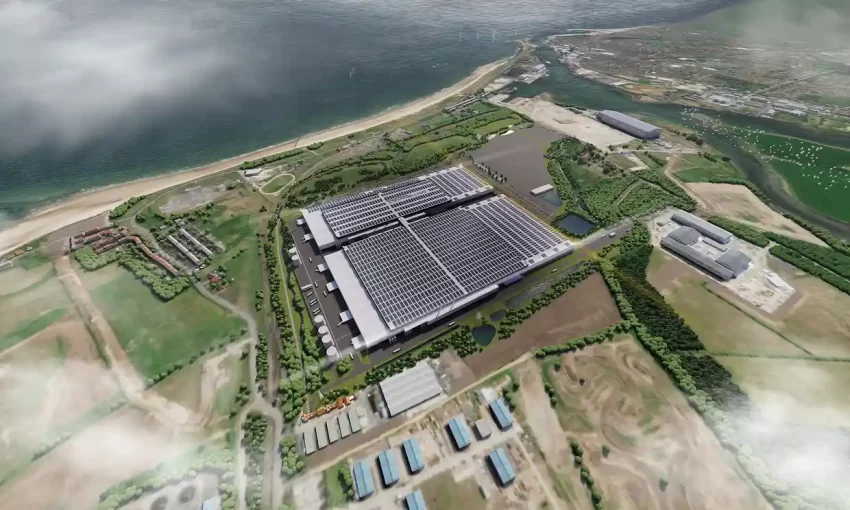He made a break from room eight of the old mine hostel and fired off three quick shots.
ADVERTISEMENT
CONTINUE READING BELOW
Two bullets shattered the windscreen of the approaching unmarked police car, another pierced the side door. The policeman driving the car drew his service pistol, leaned out of the window and fired.
Mnyamane was hit three times.
Read: The most dangerous job in the world
When police tracked him to the clearing of high grass behind the abandoned Skomplaas hostel in Durban Deep, the gangster who had terrorised communities off the Randfontein road lay dead. Police at the time believed he was linked to at least eight murders, and he and his gang were accused of gang rapes too.
The death of the man, who was known only by his nickname Mnyamane, (“the black one” in Sotho), was welcomed by residents GroundUp spoke to.
“Yeah, everyone was happy and for a while crime did go down, but now it is bad,” said a resident from nearby Sol Plaatje, who didn’t want her name to be used.
Mnyamane was killed four years ago, but still the residents of Matholesville, Sol Plaatje, Skomplaas, Durban Deep and Braamfischerville live in fear of daily shootings, rapes, kidnappings and theft.
New gold rush
Driving this crime, say the residents, is the new gold rush that has brought criminal syndicates who are associated with the artisanal miners who work the seams of gold in the abandoned tunnels below much of the West Rand.
Durban Deep mine, where gold has been mined since 1898, is one of the deepest in the area at 2 400 metres. The mine was owned by Barlow Rand and then by Durban Roodepoort Deep, which stopped mining in 2001.
Listen/read: ‘Zama zamas are terrorists’ – Lesufi
In 2018, Brigadier Sam Manala, station commander at Roodepoort Police Station, attributed 90% of murders in his precinct, which includes Durban Deep, to illegal mining. “This is one of the biggest problems that we are facing in this area,” Manala told GroundUp then.
The situation has worsened, according to residents.

Artisanal miners in Durban Deep pan for gold. Image: Shaun Smillie/GroundUp
When Gauteng Provincial Police Commissioner Lieutenant General Elias Mawela released Gauteng’s crime statistics for April to June this year, he revealed that Roodepoort police station, which serves Matholesville, Sol Plaatje, Skomplaas, Durban Deep and Braamfischerville, had seen a 44% increase in the reporting of serious crimes.
Crime statistics for the period July to September, released by the South African Police Service (SAPS) in November, ranked Roodepoort police station seventh out of 30 priority stations nationwide with the highest rates of crime.
The station registered increases in most categories of serious crime, including murder, kidnappings, attempted murder, home robberies and assault, from one quarter to the next. But there was a decrease in the number of reported rapes.
Read:
SA’s police are losing the war on crime
Crime costs SA 10% of GDP each year, World Bank says
The nights are filled with gunfire, and along Solomon Street, which runs through Sol Plaatje, homeowners point out bullet holes in the walls of their homes, a reminder of past shootouts between rival gangs.
One of those shootings happened in May on Solomon Street. That night, residents were woken to the sound of shots being fired in the informal settlement behind their houses. The gun battle ended up at Boitu’s Inn, where two people were killed.
“We woke up and watched them take the bodies out,” said the same Sol Plaatje resident.
All the people interviewed by GroundUp who live in these communities didn’t want their names used. They said that many of the criminals are now living among them in leased rooms or have local girlfriends, and they feared there might be reprisals if they spoke out.
In the houses along Solomon Street, residents can hear miners working beneath their homes. Sometimes their homes shake from underground explosions.
Read: Benoni residents petition government to stop illegal mining near their homes
Across the road are rows of shacks where residents say women have been taken to be raped. A person in the community who works with rape survivors explained that many victims don’t report these crimes to the police as they are pressured by their attackers to remain quiet.
That person said they knew of three rapes in the last couple of months, and of four other incidents where the survivors didn’t report the crime to the police.
‘Police aren’t doing enough’
ADVERTISEMENT
CONTINUE READING BELOW
In February, residents marched on the police station calling on Police Minister Bheki Cele to visit. They complained of the high crime rate in the policing area, in particular house robberies.
“The problem is that most people are afraid to report crimes as they don’t know if they (the perpetrators) will come back to their homes,” said a resident of Matholesville, which lies to the north of Sol Plaatje.
Residents complain that police aren’t doing enough, and even state-run ambulances are reluctant to enter these areas without security. Caleb Finn, the ward councillor for neighbouring Florida, says he often has to intervene to get ambulances to respond.
In Matholesville, residents patrol the streets at night, and though they are unarmed, their visible presence is said to help.
Some residents feel a renewed sense of hope after the government announced that the army had been tasked to fight the syndicates associated with illegal miners. With the army would come police reinforcements too.
Read: SA plans special police force to combat illegal miners
However, experts have warned that the army is not a good fit for such an operation, as soldiers are not trained in police work or clearing mine tunnels.
When GroundUp visited the area, SAPS’s tactical response teams from Ekurhuleni and Vereeniging were patrolling Sol Plaatje. On the ground were also the newly recruited crime prevention wardens, and a police helicopter flew overhead.
In neighbouring Matholesville, an open field that is usually filled with people cranking phendukas (hand-driven cylinders) to pound gold ore, was empty. The artisanal miners, it appeared, had gone to ground.
More needs to be done
One community leader believes, however that more is needed to be done to rid the area of crime.
“It needs a multi-disciplinary approach with everyone on board, including government departments, especially the justice department, so they can assist in the fight against illegal mining,” he said.
Ingrid Reinten, a City of Johannesburg councillor who has done a lot of work in the area, believes an economic approach would work best.
“My personal point of view is that illegal miners are only there because they want the resource, they have no interest in the land. And if we are smart, and we get the resources out legally, then they will go, because there is nothing left for them to gather,” she said.

A photograph of Mnyamane, a gangster in the area who was killed by police. Image: supplied
A forwarded image passed from cellphone to cellphone in the community shows a photograph of Mnyamane at the height of his reign of terror. The photographer caught him surrounded by his gang, who posed for the photograph with their guns clearly visible. Mnyamane sits on a stool reading a magazine.
Back then, pleas to the local police station to deal with Mnyamane and his crew fell on deaf ears, claim residents.
But when the provincial police heard of Mnyamane, things changed.
Mawela ordered an investigation, according to police, and soon the police were on the hunt for Mnyamane. A tip-off led to his hiding place in that abandoned Skomplaas hostel.
Police focus is once again on the area, and residents are happy to see the army and police working together. But they are not sure how long this will last.
“The police do that, but then they go away,” said a resident from Matholesville. “And the community has lost hope because something can happen in front of you and you won’t report it.”

This open field near Matholesville is usually busy with artisanal miners processing gold ore, but on the day we visited, it was empty. Increased police activity had apparently chased them away. Image: Shaun Smillie/GroundUp
© 2023 GroundUp. This article was first published here.




